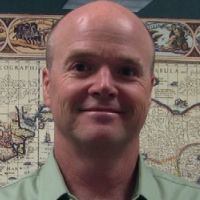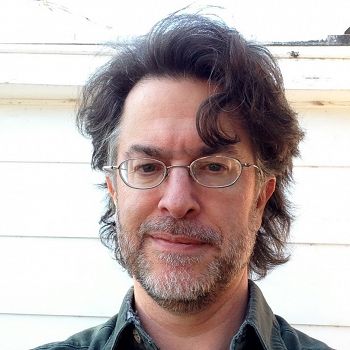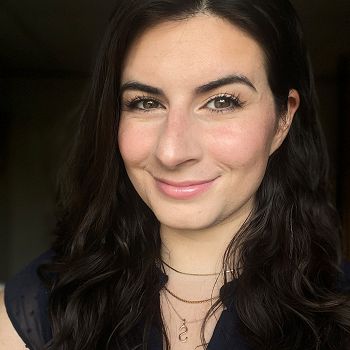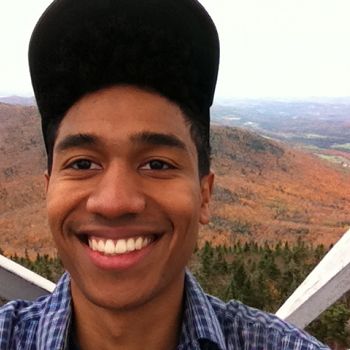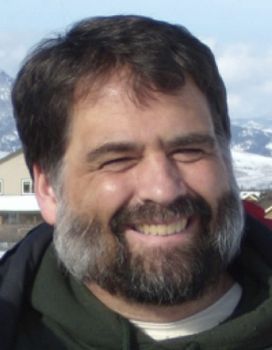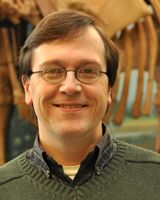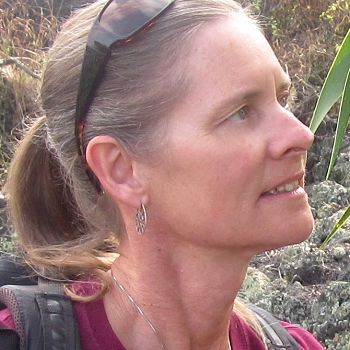National Office
The CZO National office (CZONO) was established in 2014 to:
- Provide a single point of contact for the program.
- Enhance communication among CZO researchers and students.
- Develop new educational and outreach initiatives.
- Increase interaction of the CZO program with a broad range of scientists.
- Promote common measurements and data protocols.
The increase from six to nine observatories necessitated the formalization of a CZO National Office (CZONO) in 2014. All nine observatories are intensively studied, interdisciplinary research and education sites that focus on the Critical Zone.
The CZO National Office is now led by Dr. Tim White (Director). The overall goal of the office is to help advance network-level Critical Zone science, education and outreach as a tool for sustainability. Some of the office's routine tasks are to establish regular communication among CZO PIs, organize two national meetings annually, offer graduate/young scientists workshops, develop electronic delivery of educational resources for Critical Zone science, and:
1. Provide a single point of contact for the program. The National Office serves as the contact for the national program. The website criticalzone.org is the primary outreach venue for the program.
2. Enhance communication among CZO researchers and students. Organization of monthly teleconferences, circulation of agendas, and note taking and archiving are fundamental tasks of the national office along with the initiation and development of cross-CZO working groups.
The overall goal of the National Office is to help advance Critical Zone science as a tool for sustainability.
3. Develop new educational and outreach initiatives. The National Office continues to develop and support Education and outreach activities. Our tasks include developing additional programs for graduate training, especially focused on the broader community; educational modules based on CZ science activities and data that can be adapted for undergraduate and secondary education curricula; and, teacher’s workshops at either National Science Teacher Association or North American Association for Environmental Educators meetings.
4. Increase interaction of the CZO program with a broad range of scientists. A visible presence at AGU is a fundamental assignment of the CZONO, as is the development of brochures that accurately represent the network. An important function of the CZONO is to integrate scientists and students currently outside the CZO community to take advantage of the CZOs as a community resource. The CZONO acts as a liaison between the CZO program and related U.S. programs including CUAHSI, NEON, and LTER, and to international programs such as SoilTrec, the EU CZO program, and the French RBC (Network of River Basins), and other evolving networks for example in China, Australia and other European nations. Improved integration with other science programs that have overlapping goals extends the Critical Zone network concept over a wider range of environments and processes than the U.S. CZO program can achieve on its own.
5. Promote common measurements and data protocols. The CZONO views engagement with other U.S. networks as the best opportunity for fully developing environmental-gradient science and common measurements. An NSF-funded Science Across Virtual Institutes (SAVI) grant to the National Office (2014-2019) focuses on common measurements through regular meetings, workshops and field schools, as well as international scholarships for graduate students.
CZONO Newsletter
The National Office began publishing CZNews, a quarterly newsletter, in 2015. A monthly newsletter started in late 2016. For links to issues, see National News.
CZONO Personnel
David Lubinski
CZO Webmaster
Email
Sarah Sharkey
National Office Coordinator, SAVI Staff
Email
Justin Richardson
Outreach Officer
Email
David Lubinski (INSTAAR, CU-Boulder) leads the maintenance and further development of the criticalzone.org website, a key resource for the CZOs and the broader scientific community.
Sarah Sharkey (CZO, Penn State University) coordinates all activities of the National Office. She facilitates communication and cross-site science using common measurements within the U.S. CZOs and internationally. She also coordinates the Science Across Virtual Institutes (SAVI) Project.
Justin Richardson (UMass Amherst) leads outreach efforts for the National Office. In his prior position as a CZO PostDoc, he helped lead cross-CZO research, generate communication of science with public and educators, and enhance community among undergraduate, graduate students, and investigators.
CZONO Collaborators
Robert Ross
Education-Outreach
Email
Alexandra Moore Education-Outreach
Email
Don Haas (Paleontological Research Institution/Museum of the Earth) helps lead outreach and education efforts.
Robert Ross (Paleontological Research Institution/Museum of the Earth) helps lead outreach and education efforts.
Alexandra Moore - (PRI - Paleontological Research Institution, Museum of the Earth, Cayuga Nature Center, CZO) helps lead outreach and education efforts.
More Info
About the US NSF CZO Program (including main components, introductory video, history, printed materials)
Research overview (including goals, questions, approach, news, publications)
About the SAVI project (including awards, workshops, international collaboration)
Justin Richardson
Outreach Officer
Email
David Lubinski
CZO Webmaster
Email
Sarah Sharkey
National Office Coordinator, SAVI Staff
Email
Robert Ross
Education-Outreach
Email
Alexandra Moore Education-Outreach
Email
Explore Further
